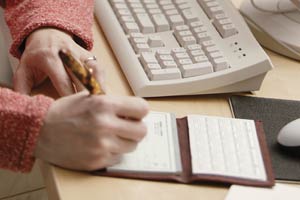 Though the holidays are over, the bills linger into the new year.
Though the holidays are over, the bills linger into the new year.
If you’re living paycheck to paycheck — or even if you’re able to save a little money — you’ve probably found yourself looking for new and creative ways to make the most of your current funds.
There are always tricks to stretch your dollar, but often simple changes in your habits make the real difference. From changing your entertainment routine to being more aware of your cash flow, here are 12 ways you can stretch your budget heading into 2011.
- Use cash for face-to-face purchases. Relying on credit cards should be a last resort for making payments. Using cash or debit cards helps keep you honest about what you’re able to spend.
- Have a written budget.
- Ask your current cable or internet providers for a better price or, for other lower-priced service options.
- Reexamine when and where you eat out. Look for deals during the week. Try lunch or breakfast instead of eating out at dinner. Check out online sites that provide printable coupons for savings like Foodelz.com.
- Visit secondhand stores to find deals on clothes, books, toys, furniture and much more.
- At the grocery store, consider purchasing store brands. They’re priced below name brands. Also, remember to stock up on frequently used items when they are on sale.
- Have a “phantom” $100 in your checking account and avoid overdraft fees.
- Call your car insurance provider and ask for a better price. Ask about “mutual” companies.
- Reduce entertainment costs by viewing popular television content on Hulu.com, ABC.com, and CBS.com.
- Consider the following ideas:
- Drop your premium movie channels or cable TV, altogether.
- Use Compact Fluorescent Light (CFL) bulbs to reduce energy costs.
- Don’t buy bottled water. Buy a water filter and use a reusable bottle.
- Use automatic deposits for 401(k) plans and “rainy day” savings account.
- Pay down credit card and installment debt. When you do, you free up money to save and invest.



